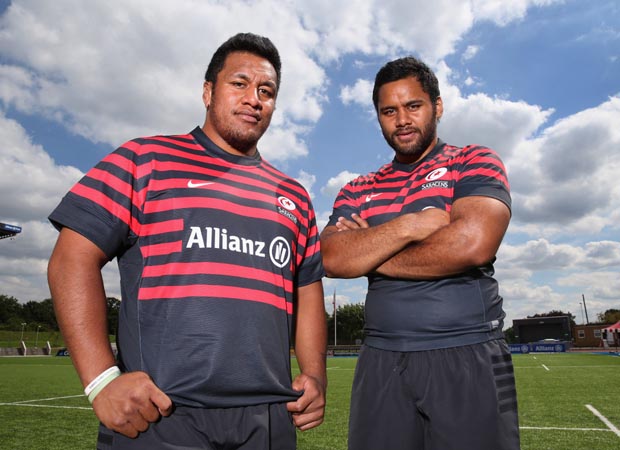 The two biggest spending clubs in France and England, Toulon and Saracens, have proved that money can buy success. Although it has taken them some time and a heck of a lot of money, both clubs are sitting at the top of their respective leagues and have qualified for the final of this year's Heineken Cup, Toulon having won it last season.
The two biggest spending clubs in France and England, Toulon and Saracens, have proved that money can buy success. Although it has taken them some time and a heck of a lot of money, both clubs are sitting at the top of their respective leagues and have qualified for the final of this year's Heineken Cup, Toulon having won it last season.
Finally the dreams and desires of their fans and rich owners are being realised, and even though success for one will mean disappointment for the other, it is an achievement that should both delight and frustrate those that manage the Top 14 and the Premiership.
As both leagues pioneered the process that forced change in the European competition, it is somehow appropriate that they should provide the finalists for the last cup final of the old competition; and that those finalists are the two clubs that typify the excesses of the professional game.
The delight will be that both leagues can say their clubs reaching the final has proved that their intentions in seeking change were not to advantage them in anyway but was purely to enhance the competition for all.
The frustration is, the clubs that are the current standard bearers for both leagues are clubs built on foundations of sand, or the whim of a rich man's fancy, which would leave no lasting legacy should their owners decide to take their investments elsewhere.
Fortunately, for both clubs they have passionate owners who seem to be in for the right reasons and the long haul. In taking their clubs from the bottom to the top of their leagues they have made professionalism work – but at a cost.
Both clubs have bought some of the world's best players but that in itself is no guarantee of success, as both can testify after years of not quite making it. But the combination of finally finding the right coach with the right plan and right players has seen both squads begin to gel into teams that can perform as a unit.
This may sound like a strange contradiction, but a squad full of very talented individuals doesn't always make for a good team.
Rugby is about unit skills combining to deliver a team performance. Yes, a great individual can make the difference between winning and losing but too many stars can be the undoing of any side.
The Barbarians prove time and again that a team made up of great individual players doesn't always make for a winning side and usually gets beaten by better team work.
One cost of both clubs finding their teams is that not many of the squad are local home grown talent.
Saracens have a greater number of English qualified players (nine) than Toulon have French who started last week's semi final (three), but this is because the RFU pay clubs to have a certain number of EQP in match day squads.
Despite the fact that Sarries had more than half the team who qualify as EQP, they can hardly be called a ‘home grown English Union team' as two come from the South Seas islands, one is from Rugby League and two from South Africa with six ‘foreign' players.
I have to admit to quite enjoying the Saracens match day experience and it is the ground I visit most throughout the season – but I worry about how this affects England Rugby and English players.
If the most successful teams are those with a large number of foreign born players, where does that leave those born and brought up in the English game?
The England Qualified Player idea is a joke because any young player who comes here to play rugby becomes qualified to play for England after just three years under IRB regulations. Even if, like Manu Tuilagi, you arrive in England on a holiday visa at the age of 13 (1991) and stay illegally (he was granted indefinite leave to remain in 2010) you can still make it as an EQP.
Over the next few years there could be massive pressure on the current system as English and French clubs are offered increasing numbers of young South African players because of the threat of a new quota system in the Republic.
Any quotas would leave a number of young South Africans players with no clubs to play for at home and with Europe occupying the same time zone as South Africa the opportunity to travel north could become irresistible.
Most of the prospective new players would be just out of school, so would be invited to take places in the Premiership Academies and could become qualified for England, France or any of the other Home Unions by their late teens or early 20s.
The potential disruption of any mass movement of young players to the professional leagues in Europe should ring alarm bells in the IRB.
With a bit of luck it should force them to do something they should have done when the game went professional – ‘tighten up' the qualifying criteria and extend the residential qualifying time from three to eight years or even longer.
It's good to see that the new Champions Cup will be merit based and that the top team in each of the lower competitions will be given the chance to qualify for the one above.
As revealed in The Rugby Paper last week, the news that there will be a reward for winning the European Rugby Challenge Cup is just common sense and gives everybody something to play for.
I wonder why the powers-that-be never thought of it while structuring the new competitions and then suddenly changed their mind – perhaps they read my article a couple of weeks ago?


























